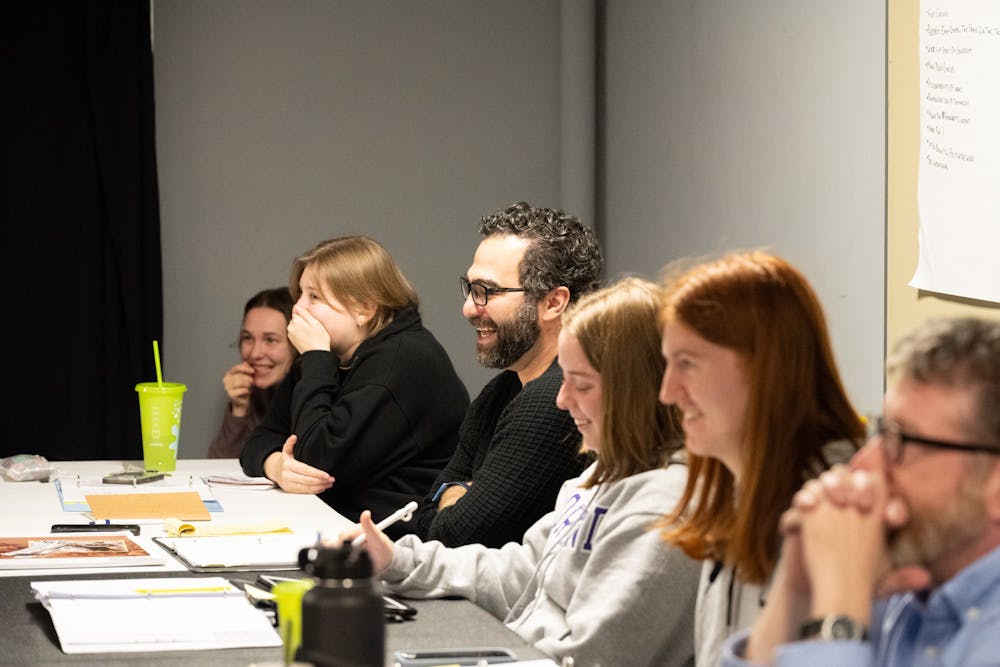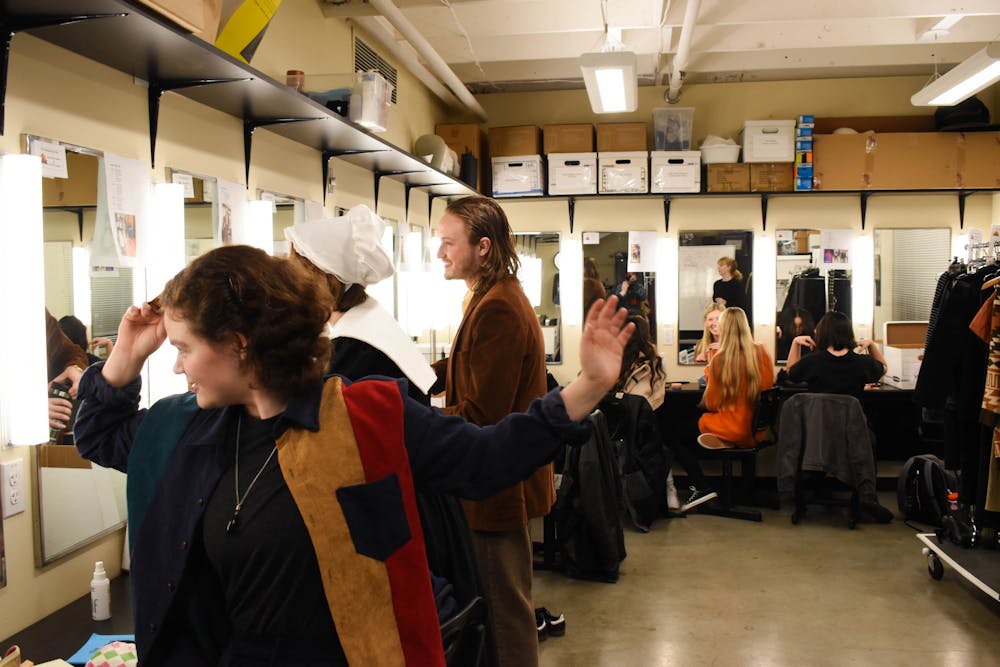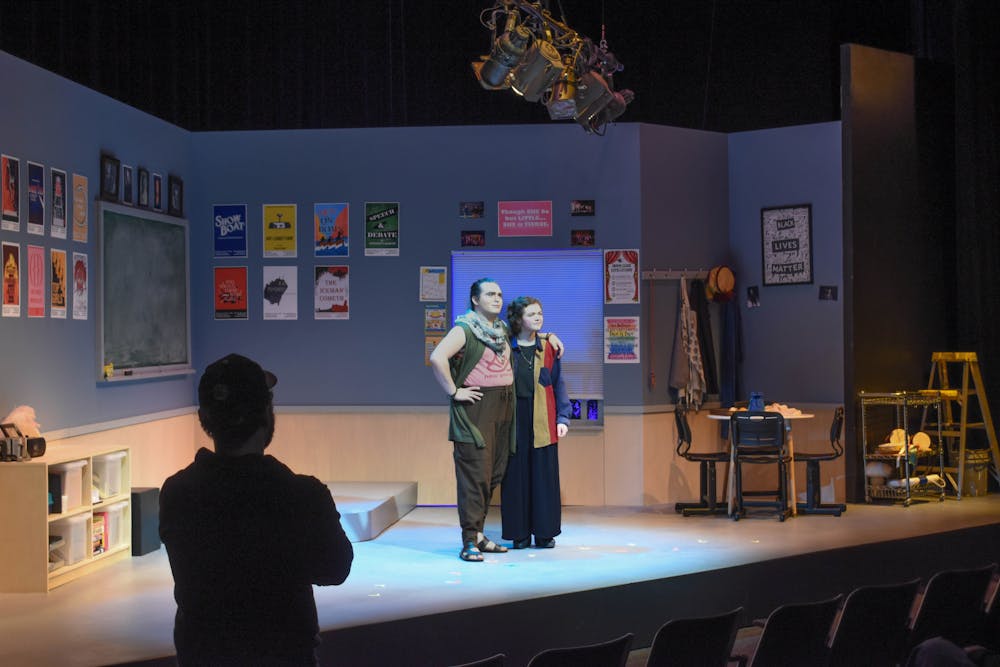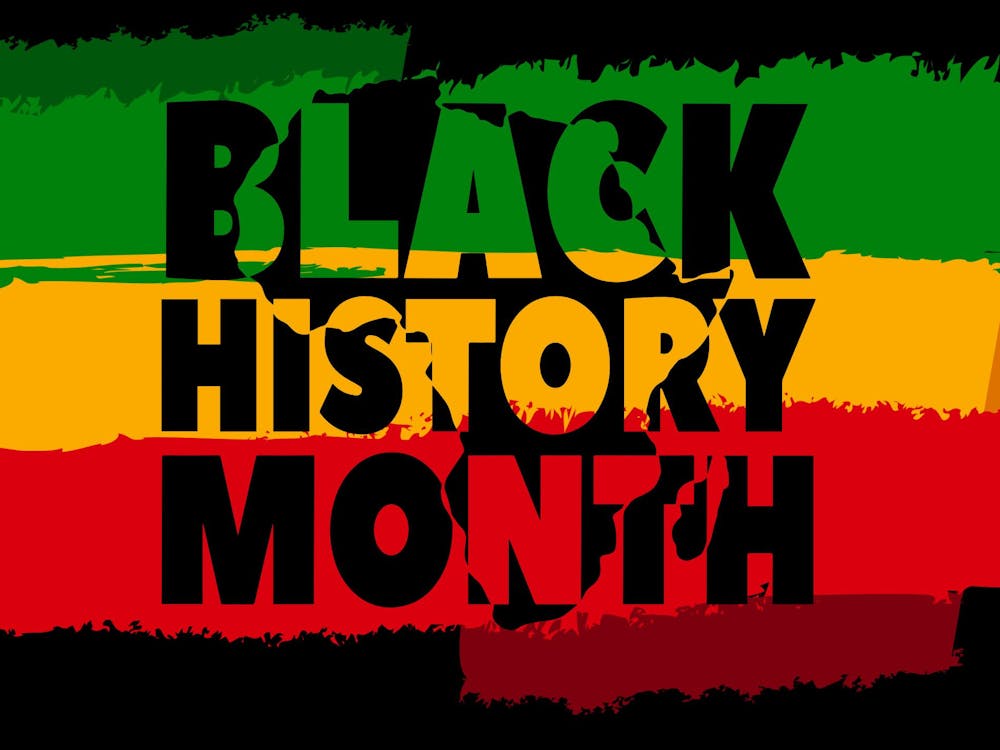Four well-meaning white characters will step on the stage this Wednesday and take on the most daunting task of all: making a woke but not-too-woke Thanksgiving play for children.
Written by award-winning Native American playwright Larissa FastHorse, “The Thanksgiving Play” is a witty take on what it means to be a white person seeking justice for the Native American community through theater.
“The Thanksgiving Play,” set in the Portland metropolitan area, will be the second production of the theater season. The play will run from Nov. 12-16, with each show starting at 7:30 p.m. in the Mago Hunt Theater. Tickets can be purchased online or at the box office.
Native American audience members can attend for free by emailing boxoffice@up.edu. They will be added to the list of attendees that can see plays free of charge, and no proof of Native American heritage will be required.
Guest director Phillip Guevara looks forward to seeing the main characters tiptoe around the social issues present in a play about Thanksgiving.

“[The play] is about white people grappling with genocide, … erasure, white supremacy, misogyny, and it is hilariously told through satire,” Guevara said. “It is pretty much what you would expect when you hear, ‘Well-meaning white people trying their best to put on a Thanksgiving play.’”
Performing and fine arts professor Andy Christensen says the play will poke fun at white people’s performative sense of social justice and their attempts at being woke that ultimately cause harm to the people they try to uplift.
“What most theaters need to talk about, and [what] most institutions need to talk about, is [that] well-meaning whiteness is sometimes the problem,” Christensen said. “And sometimes it is harder to navigate than overt white supremacy because it's still about trying to make sure that people can see themselves as good white people, rather than about honestly questioning the notion [of] whether you can be a good white person in a system of white supremacy.”
Senior actor Laya Duguid, a citizen of the Choctaw Nation, emphasizes decentering white people no matter how well-meaning they are and to instead give voice to Native Americans’ lived experiences.
“Sometimes the greatest thing you can do is just listen and uplift the voices that you oppressed for centuries,” Duguid said. “And honestly the same [goes] for theater. The first thing you can do is produce and perform this play and get conversations going. Next thing you can do is take time and listen and decenter yourself."
Branna Sundy, a senior actor, touches on Portland’s reputation for performative social justice through her character. She plays Logan, a high school drama teacher who is responsible for making and directing a historically accurate but kid-appropriate Thanksgiving play.

Actors prepare for rehearsals of "The Thanksgiving Play."
“We [should] question the white supremacy that Portland has so much of,” Sundy said. “[We wanted to] set it in a place the audience is familiar with.”
During the interludes, the understudies in “The Thanksgiving Play” will display satirical and problematic situations relating to FastHorse’s lived experiences with white supremacy and performative social justice in Indigenous contexts.
Kayla Matsuoka, a sophomore ensemble member, is excited about how the interludes will serve as a reminder of the social issues at hand.
“[The play is] very smart in the way that it kind of really gets at the icky points in people,” Matsuoka said. “Everyone knows someone who has these kinds of faults, but it's also hard to recognize that from ourselves or from different perspectives. So it does a really good job of calling it out in a way that's very light hearted and satirical.”
Most of the contributors in the play agree this play intends to promote conversation. The department encourages this through a new policy allowing audience members who identify as Native American to attend all future productions for free, including “The Thanksgiving Play.”
But Duguid says this policy should have been implemented much sooner.
“[It’s] a great next step,” Duguid said, “I think [this] should have been done when they implemented the land acknowledgement. I'm glad it's being done now. It could have happened sooner.”
Duguid also says “The Thanksgiving Play” is supposed to elicit discomfort in white audience members.
“It’s okay to be clocked,” Duguid said. “I feel like it's so necessary to have these spaces where it's like, ‘Okay, let's pause,’ and have you look at yourself and your community and see the reality of the situation. It's totally fine to feel uncomfortable.”
Reem Alshaban is a news reporter at The Beacon. She can be reached at alshaban28@up.edu








